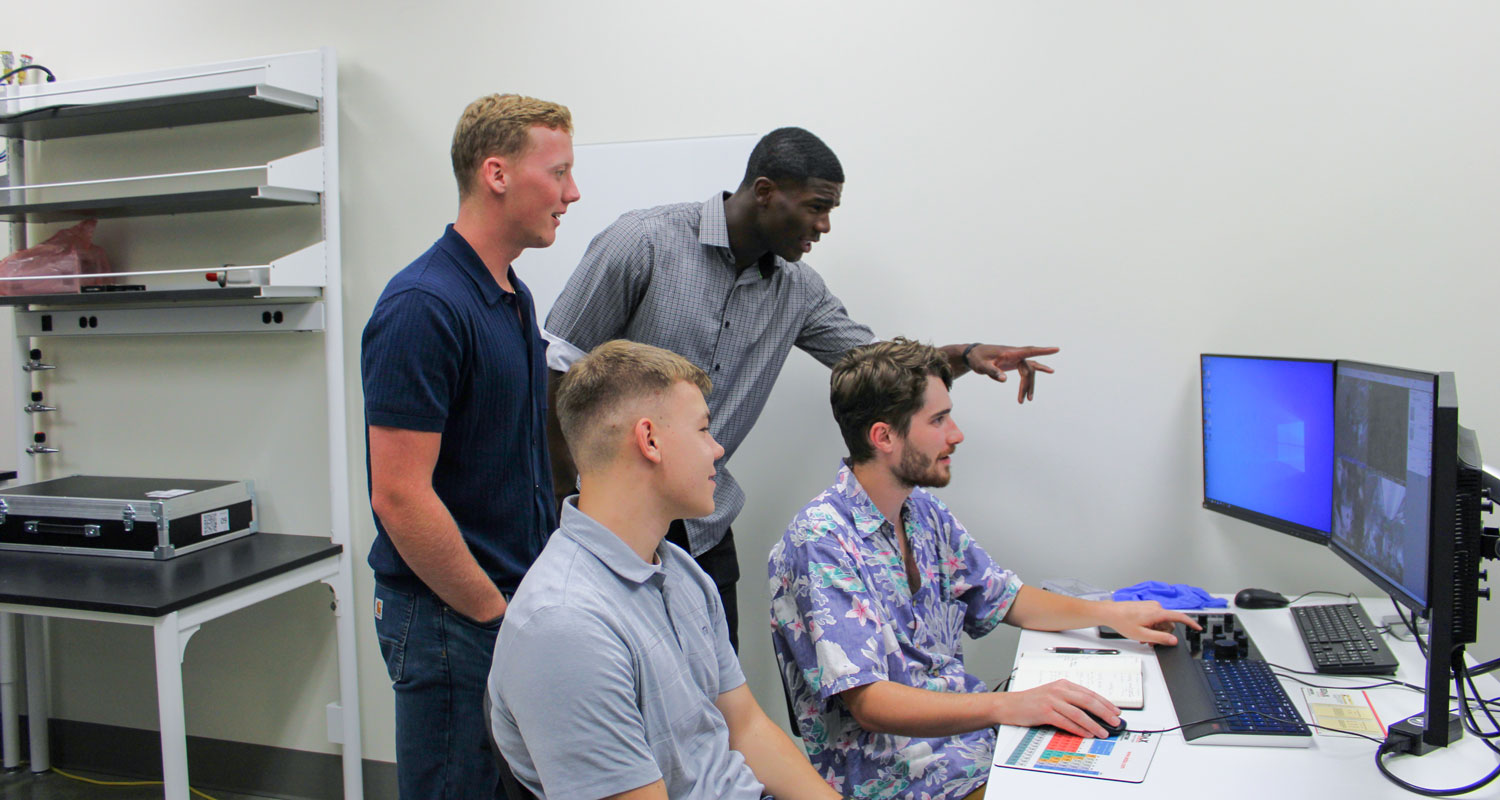TCE’s Army Internship
Army Cadets Complete Internships with TCE
Seven cadets from the United States Military Academy West Point spent part of the summer at the University of Tennessee working with engineering groups in labs, conducting research, learning new skills on state-of-art equipment, and gaining insight about developing technologies that can potentially assist the Army in the future.
The opportunity came through the Academic Individual Advanced Development (AIAD) program West Point offers cadets to broaden their experience and help them become more well-rounded leaders by spending time in a world-class immersive learning environment.
The AIAD internship with UT launched this year as part of a cooperative agreement between UT and the Army Research Laboratory (ARL).
“These cadets are not only exceptional students, but their military training, brings a warfighter perspective that enhances the research,” said Bruce LaMattina, the senior director for space and defense programs at the University of Tennessee Space Institute (UTSI). “It’s great for them to see what future materials or manufacturing techniques might look like for the Department of Defense. That’s helpful to them, and it’s helpful for us to get feedback from an actual person who’s being trained for the military.”
The engineering professors who hosted the inaugural UT-AIAD intern cohort—Materials Science and Engineering Assistant Professor Katharine Page; Mechanical, Aerospace and Biomedical Assistant Professor Damiano Baccarella, MABE Professor Tony Schmitz; and MABE Assistant Professor Phillip Kreth—are all principal investigators in the ARL cooperative.
Experience in the Field
Cadets Brian King and Ty Ezell interned at UT’s Manufacturing and Design Enterprise (TN-MADE) with Schmitz. The mechanical engineering majors worked with the MELD Manufacturing L3 additive friction stir deposition machine. They collected and analyzed data to help understand how processing parameters effect the final properties of components used in Army systems.
“The chance to work in a research facility and work with modern technology and cutting-edge fields to see how that applies to things we are actually studying was great,” said King, a rising senior from Churchville, Maryland. “It was extremely valuable to make that connection between what we learn in a book and how the real world looks.”
James Ross interned with Page’s group synthesizing high entropy ceramics at the Institute for Advanced Materials and Manufacturing (IAMM). The chemistry major helped with optimizing and characterizing the microstructure of the new ceramics, which may be used in thermal barrier coatings that are needed for applications in extreme environments.
“Coming here is definitely enriching because UT has more resources to do more research on a broader scale. It’s pretty cool,” said Ross, a rising sophomore from Loudon, Tennessee. “We don’t have these awesome Helios microscopes at West Point. I see a lot of similar equipment, but on a smaller scale.”
Collaborative Learning Process
Before Ross arrived, Page spoke with his advisor at West Point. His advisor was excited for Ross to work with the equipment at UT and develop skills he could bring back to her lab at West Point to share. In turn, Page was grateful to interact more with the cadets and their professors.
“It’s nice to meet some of the future leaders of the military and learn more about their experiences and the different pathways they take in the Army,” Page said. “I’ve been working with researchers and program managers in the Army Research Lab, but collaborating with some of the soldiers and officers who use the technologies that we’re working on is really neat.”
LaMattina is hoping the inaugural cadet cohort is the start of a long-running internship partnership between West Point and UT. He’d love to see interns eventually return to Knoxville as students to continue their education.
“These cadets are some of the finest students in the nation, so it’s great to have them exposed to our ecosystem and our research. Most of them have opportunities to pursue advanced degrees in the future and we hope they choose the University of Tennessee,” he said. “These cadets are the future leaders of the Army, and we hope they feel like part of the Volunteer family through this educational experience.”
Contact
Rhiannon Potkey (865-974-0683, rpotkey@utk.edu)
